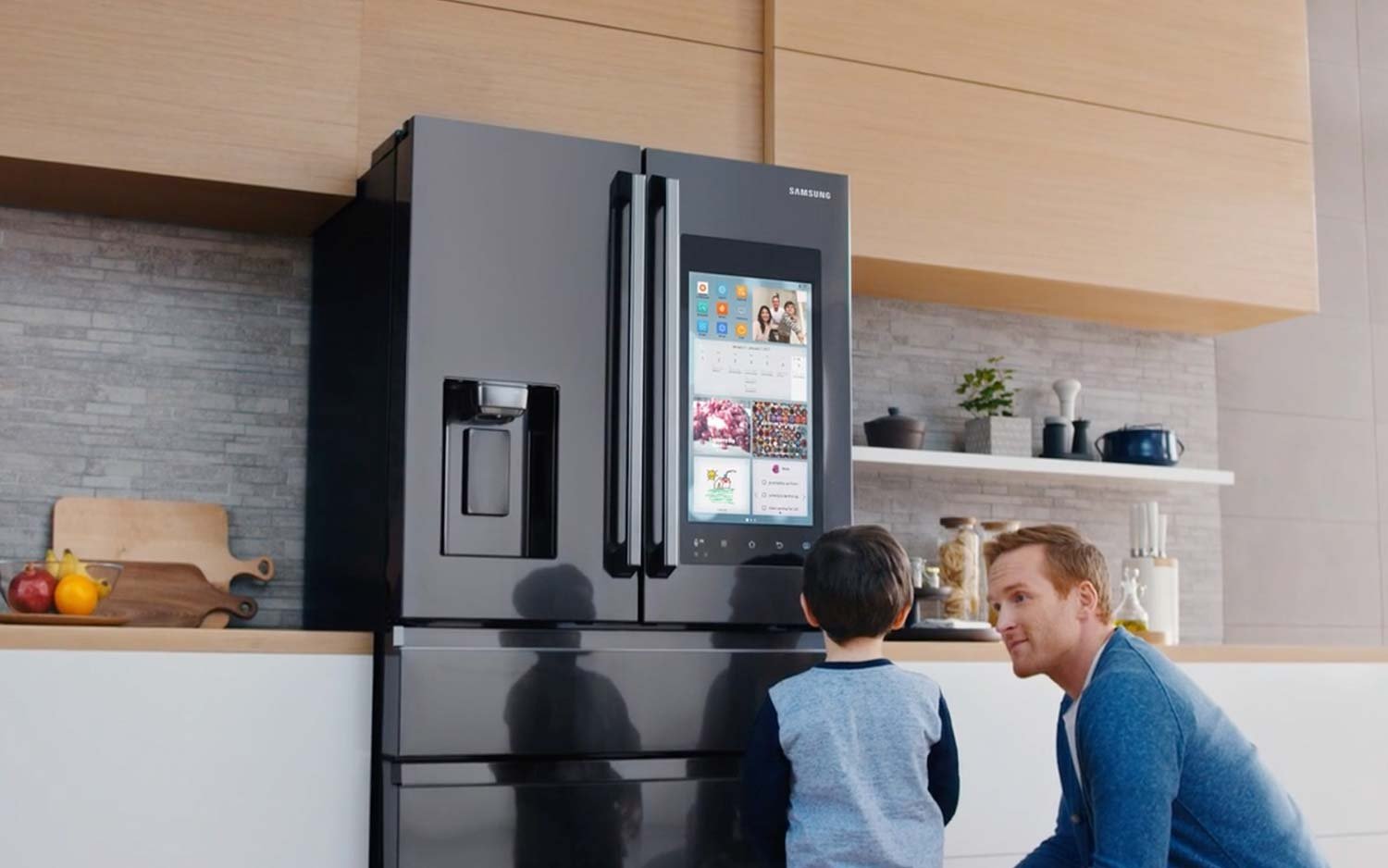Smart Kitchen Water Filtration Systems
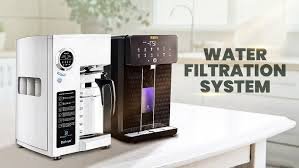
Water quality has become a critical concern in today’s households, especially when it comes to the kitchen, where water is used for drinking, cooking, and cleaning. The importance of having clean, safe, and readily available water cannot be overstated, and this is where smart kitchen water filtration systems come into play.
These systems incorporate advanced technologies to ensure water is not only filtered efficiently but also monitored and managed in real-time. As homes become smarter with the integration of connected devices, the adoption of smart water filtration systems is gaining momentum, offering convenience, health benefits, and peace of mind.
Understanding Water Contaminants and the Need for Filtration
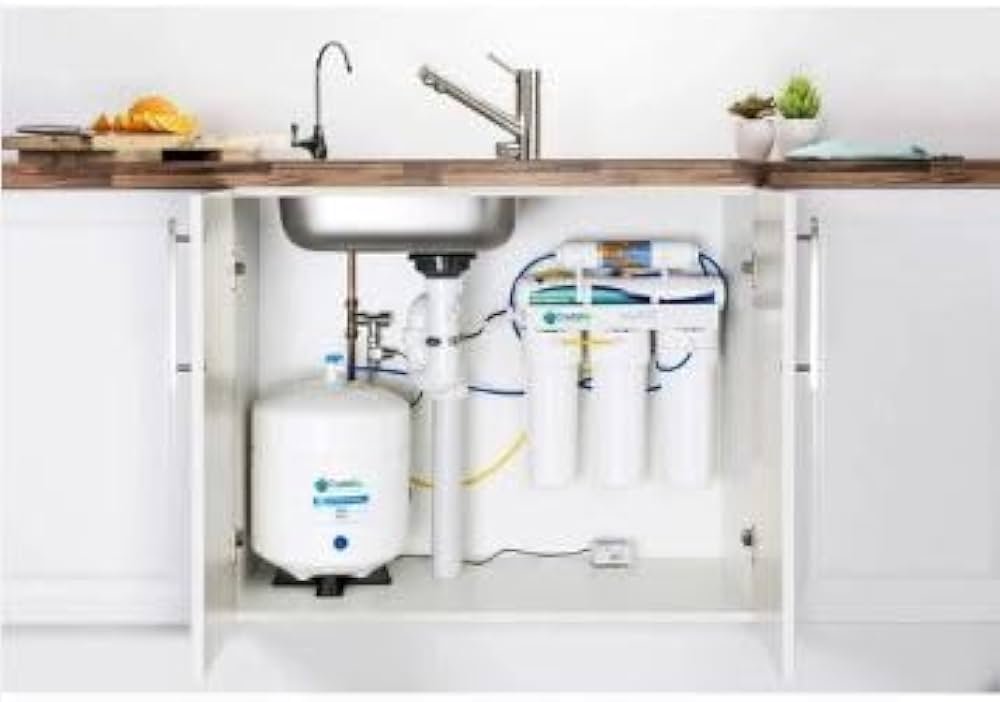
Clean water is essential for daily living, but many household water supplies contain contaminants that can pose health risks. Understanding the types of contaminants commonly found in water and the need for effective filtration is crucial for making informed decisions about water quality in the kitchen.
Common Water Contaminants in Households
Household water can contain a variety of contaminants, categorized into chemical, biological, and physical impurities:
- Chemical Contaminants: These include chlorine, lead, pesticides, and other industrial chemicals that may leach into water supplies from pipes, soil, or industrial runoff. Chlorine, commonly used to disinfect water, can leave an unpleasant taste and smell, while heavy metals like lead can have severe health impacts, particularly on children.
- Biological Contaminants: Bacteria, viruses, and other microorganisms can enter the water supply, leading to potential illnesses. Common pathogens such as E. coli and Giardia can cause gastrointestinal distress and more serious health issues, especially in vulnerable populations.
- Physical Contaminants: These are particulates like sediment, rust, and dirt that can affect the appearance and taste of water. Although not always harmful to health, they can make water unappealing and indicate the presence of more serious contaminants.
Health Risks Associated with Contaminated Water
Consuming or using contaminated water in the kitchen can lead to a range of health issues, from minor gastrointestinal discomfort to more severe conditions like liver and kidney damage, neurological disorders, or developmental issues in children.
Chronic exposure to certain contaminants, such as lead or pesticides, has been linked to long-term health consequences, making it imperative to ensure water quality in the home.
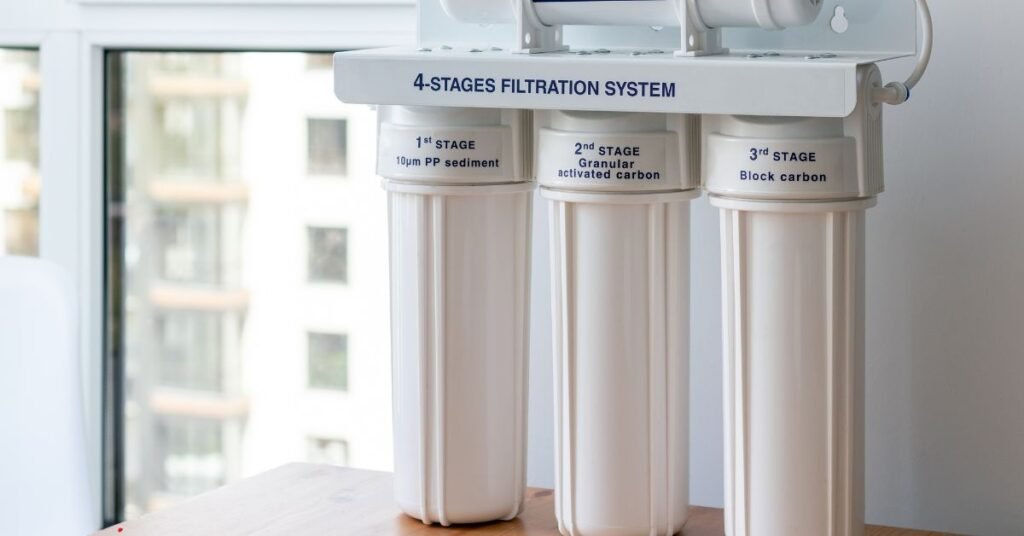
Importance of Filtration in Daily Cooking and Drinking
Filtration systems play a vital role in removing these contaminants, making water safe and palatable. In the kitchen, filtered water is essential not only for drinking but also for cooking, as contaminants can affect the taste and safety of food.
By investing in a reliable filtration system, households can safeguard their health and enhance their culinary experiences.
Key Components of Smart Water Filtration Systems
Smart kitchen water filtration systems integrate advanced technologies to improve water quality and provide users with greater control and insight. Key components include:
Filtration Technologies
Smart filtration systems utilize various filtration methods to remove contaminants:
- Carbon Filtration: Activated carbon filters are widely used to absorb chlorine, volatile organic compounds (VOCs), and other chemicals, improving taste and odor.
- Reverse Osmosis (RO): RO systems use a semi-permeable membrane to remove a broad spectrum of contaminants, including heavy metals, fluoride, and dissolved solids.
- Ultraviolet (UV) Purification: UV light is used to kill bacteria and viruses, adding an extra layer of protection against biological contaminants.
Smart Sensors and Their Functions
Smart sensors are integral to the functionality of smart filtration systems. These sensors continuously monitor water quality by detecting parameters such as pH, turbidity, temperature, and specific contaminants.
Data from these sensors is sent to connected devices, allowing users to monitor water quality in real-time and receive alerts when action is needed, such as replacing a filter.
Connectivity and Integration with Other Devices
Smart water filtration systems often connect to home Wi-Fi networks, enabling integration with other smart devices and ecosystems like Amazon Alexa, Google Home, or Apple HomeKit.
This connectivity allows users to control the system remotely, set up automation routines, and even use voice commands to access system information or adjust settings.
User Interface – Mobile Apps and Voice Control
Mobile apps provide a user-friendly interface for managing smart water filtration systems. Through these apps, users can access real-time data on water quality, receive maintenance alerts, and adjust filtration settings.
Voice control features, compatible with popular virtual assistants, add another layer of convenience by allowing users to interact with their filtration system hands-free.
Benefits of Implementing Smart Filtration Systems in Kitchens
Adopting a smart water filtration system in the kitchen offers numerous benefits that go beyond basic water purification.
Enhanced Health and Safety for Families
Smart filtration systems ensure that water is consistently monitored and filtered to high standards, reducing the risk of consuming harmful contaminants. The ability to track water quality in real time provides an added layer of security, allowing users to address potential issues immediately.
Real-time Data and Alerts for Proactive Maintenance
Traditional filtration systems rely on manual checks or rough estimates for filter replacement. Smart systems, on the other hand, use sensors to monitor filter performance and send alerts when replacements are needed, ensuring that the system is always operating at peak efficiency.
This proactive approach helps maintain water quality and extends the life of the filtration system.
Environmental Benefits of Reduced Bottled Water Usage
One of the significant advantages of smart water filtration systems is their potential to reduce reliance on bottled water.
With confidence in the quality of filtered tap water, households can minimize their use of plastic bottles, reducing waste and environmental impact. This shift not only supports sustainability but also results in cost savings over time.
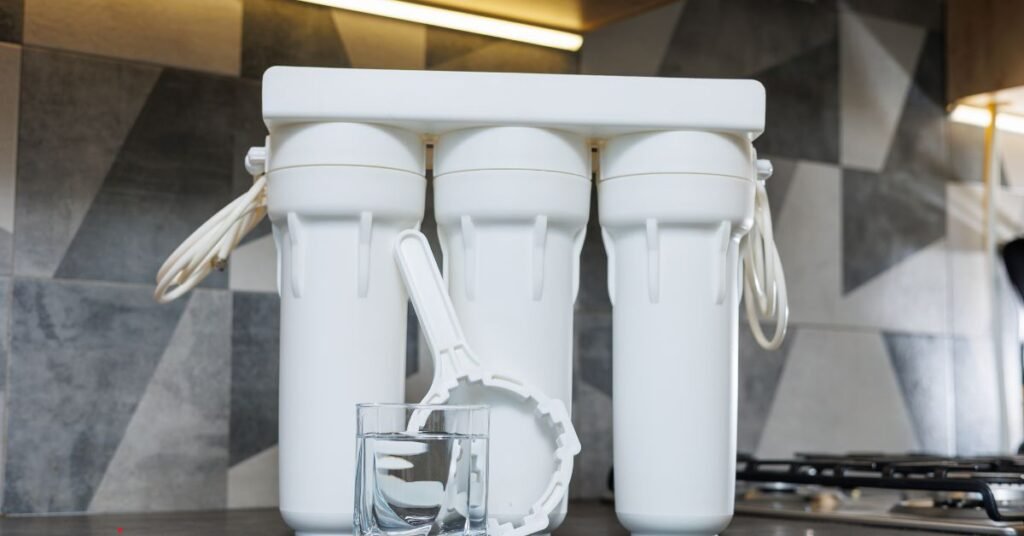
Cost Savings Over Time Compared to Traditional Methods
While the initial investment in a smart water filtration system may be higher than that of a basic filter, the long-term savings can be substantial.
Smart systems optimize filter usage, reduce maintenance costs, and eliminate the need for bottled water, making them a cost-effective solution for maintaining high water quality.
Installation and Maintenance Considerations
Installing and maintaining a smart kitchen water filtration system requires some planning and consideration to ensure it meets the specific needs of the household.
Choosing the Right System for Your Needs
There are various types of smart filtration systems available, including under-sink units, countertop filters, and whole-house systems.
Each type has its advantages and considerations, and choosing the right one depends on factors like space availability, water usage, and specific contaminants of concern. It’s important to assess these factors and compare different models before making a decision.
Installation Requirements and Professional vs. DIY Options
Installation complexity varies by system type. Under-sink and whole-house systems may require professional installation due to their integration with the home’s plumbing.
Countertop units, on the other hand, are typically more straightforward and can be installed by the user. Regardless of the system type, proper installation is crucial to ensure optimal performance and water quality.
Maintenance Needs – Filter Replacements and System Updates
Smart filtration systems streamline maintenance by providing clear, actionable data on when and how to maintain the system.
Regular filter replacements are essential to keep the system functioning properly, and many smart systems offer convenient options for ordering replacement parts directly through their associated apps.
Troubleshooting Common Issues
While smart systems are designed to minimize issues, occasional troubleshooting may be necessary. Common problems include connectivity issues, sensor malfunctions, or filter clogs. Most systems offer customer support and troubleshooting guides through their apps, making it easier to resolve issues without professional assistance.
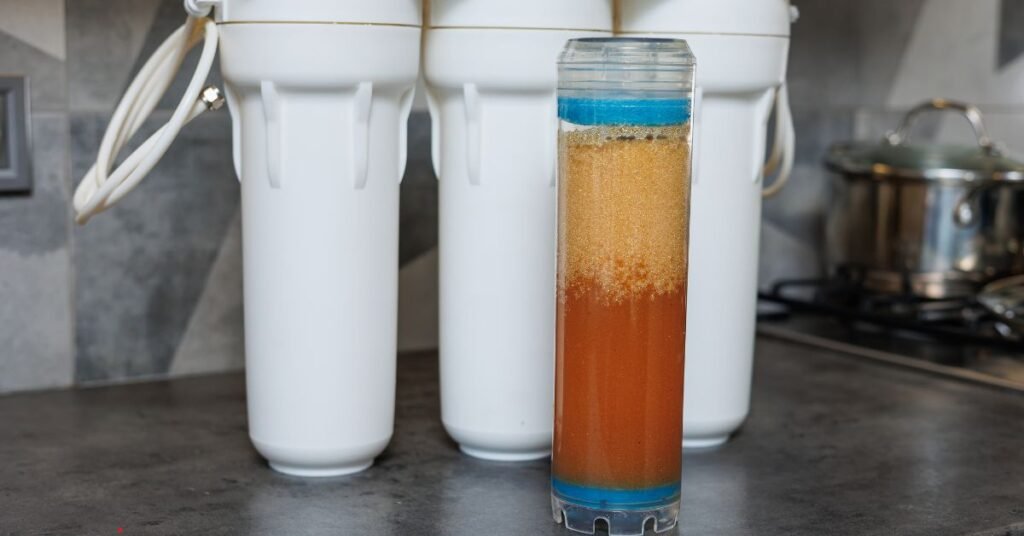
Smart Filtration in the Context of Sustainability
Sustainability is a growing concern for many households, and smart water filtration systems can play a significant role in promoting environmentally friendly practices.
Reducing Plastic Waste and Environmental Footprint
By providing reliable, high-quality filtered water directly from the tap, smart filtration systems reduce the need for single-use plastic bottles. This shift not only reduces plastic waste but also lowers the carbon footprint associated with the production and transportation of bottled water.
Energy Efficiency of Smart Filtration Systems
Modern smart filtration systems are designed with energy efficiency in mind, using low-power sensors and optimizing filtration processes to minimize water and energy waste. This efficiency contributes to lower utility costs and aligns with broader efforts to create energy-efficient smart homes.
Role in Promoting Sustainable Living in Smart Homes
Smart water filtration is part of a larger trend toward sustainable living, where connected devices work together to improve energy use, reduce waste, and enhance overall quality of life.
By integrating filtration with other smart home systems, households can create a cohesive, sustainable environment that meets their health and environmental goals.
Key Features to Look For – Buying Guide
When selecting a smart kitchen water filtration system, consumers should consider several factors to ensure they choose the best option for their needs.
Key Features to Look For
Important features to consider include the types of contaminants the system can filter, the availability of real-time monitoring, ease of maintenance, and compatibility with other smart home devices. Systems with customizable filtration settings and robust app support tend to offer greater flexibility and control.
Budget Considerations and Cost-Benefit Analysis
Smart water filtration systems vary widely in price, with costs influenced by factors such as filtration technology, connectivity features, and brand reputation. Conducting a cost-benefit analysis, including long-term savings from reduced bottled water purchases and maintenance costs, can help determine the most economical choice.
Comparing Brands and Models
Researching different brands and models is essential to finding the best fit. Comparing features, warranties, customer reviews, and independent performance tests can provide valuable insights into a system’s reliability and effectiveness.
User Reviews and Performance Feedback
User feedback can offer practical insights into the real-world performance of smart filtration systems. Reading reviews on forums, retail sites, and social media can help identify common strengths and weaknesses, guiding consumers toward the most reliable options.
Future Innovations and Trends in Smart Water Filtration
The future of smart water filtration is bright, with ongoing advancements that promise to make these systems even more effective and user-friendly.
Emerging Technologies
Technologies such as artificial intelligence (AI) and machine learning are being explored to enhance filtration systems further. AI could enable predictive maintenance, automatically adjusting settings based on water quality trends and user preferences, while advanced sensor technologies may offer even more precise monitoring.
Trends in Consumer Preferences and Smart Home Integration
As consumers continue to embrace smart home technology, demand for integrated, multifunctional systems is expected to grow. Future smart filtration systems may offer seamless integration with broader home automation setups, including smart appliances and water management systems.
Potential Developments in Filter Materials and Efficiency
Research into new filter materials, such as graphene and nanofibers, could lead to more efficient and durable filtration solutions. These advancements have the potential to reduce maintenance requirements, improve contaminant removal, and lower costs, making smart filtration even more accessible.
Impact of Regulations and Standards on Product Evolution
As awareness of water quality issues increases, regulatory bodies may introduce stricter standards for filtration systems. These changes could drive innovation, encouraging manufacturers to develop systems that meet higher performance benchmarks and provide more transparency to consumers.
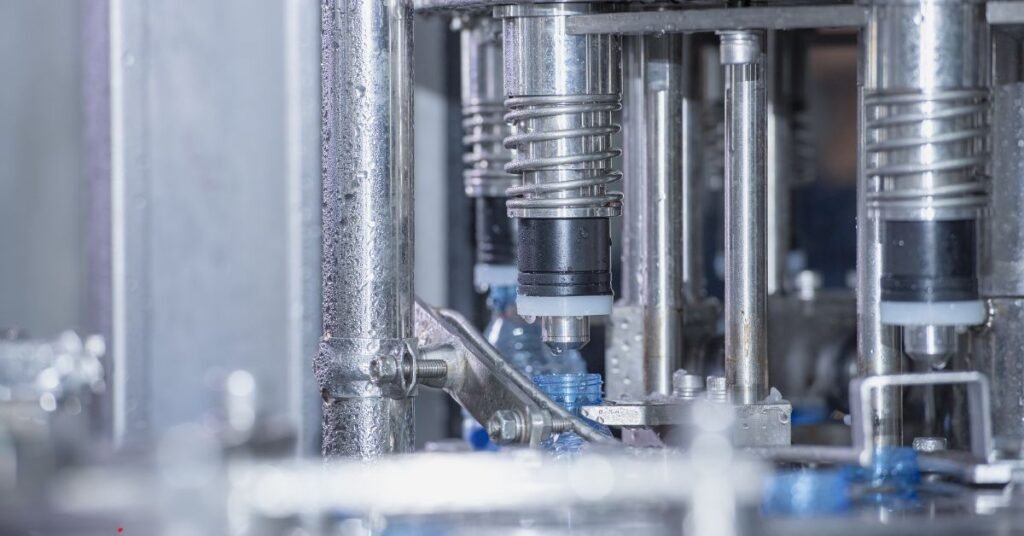
Case Studies and Real-world Applications
Real-world examples of smart kitchen water filtration systems highlight their benefits and the impact they can have on everyday life.
Examples of Smart Filtration in Modern Kitchens
From high-end luxury kitchens to small urban apartments, smart filtration systems are being adopted across a range of settings. Case studies demonstrate how these systems improve water quality, reduce costs, and integrate with existing smart home setups.
Lessons from Early Adopters and Common Pitfalls
Early adopters of smart filtration systems offer valuable lessons on installation, maintenance, and maximizing system benefits. Common pitfalls include underestimating installation complexity and neglecting regular maintenance, underscoring the importance of thorough research and planning.
Success Stories – Health and Convenience Improvements
Many users report significant water quality and convenience improvements after switching to smart filtration systems. Success stories often highlight the ease of use, peace of mind from real-time monitoring, and satisfaction from reducing environmental impact.
Also Read: How to Choose a Smart Kitchen Appliance for Baking
Conclusion
Smart kitchen water filtration systems represent a significant advancement in household water management, offering enhanced safety, convenience, and sustainability. By understanding the key components, benefits, and considerations associated with these systems, consumers can make informed decisions that improve their water quality and overall lifestyle.
As technology continues to evolve, smart filtration systems are set to become an increasingly integral part of modern kitchens, supporting healthier, more sustainable living.

